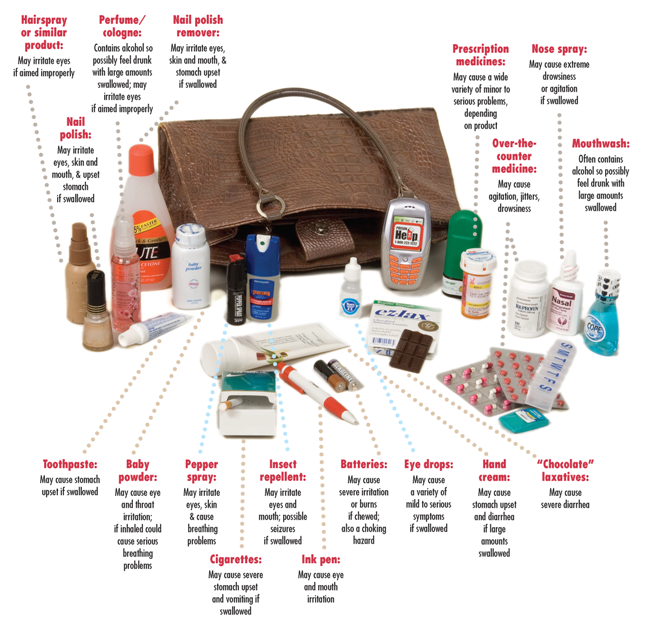| For more information, see our COVID-related poisonings fact sheet |
“My daughter licked some hand sanitizer. Should I be worried?”
“I mixed bleach with vinegar and now I’m having a hard time breathing. Will I be okay?”
“I got disinfectant on my food. Is it safe to eat?”
“My grandson got into my purse and ate some of my joint cream. What should I do?”
The poison center gets calls like this every day—and we’ve been getting even more of them since we all started social distancing because of the COVID-19 pandemic. This includes more calls about young children getting into potential poisons, but also an even bigger increase in calls about possible poisonings in adults.
Most poisonings happen at home, and with families spending more time at home, that means even more opportunity for poisonings—and that’s without adding in all the other changes we’re making during the pandemic. Here are just a few examples of new situations that can make poisonings more likely:
- Having to working from home while also taking care of young children
- Having extra medications, cleaning supplies and other products on hand to be sure to have a sufficient supply
- Trying to be extra careful about cleaning our hands and surfaces in our home
With all the changes, know that the poison center is still here for you 24/7 if there is a possible poisoning in your home. You can call us at 1-800-222-1222, chat with us online, or text POISON to 85511.
There are also some simple steps you can take to prevent poisonings in your home.
Store products safely
- Keep all medications, cleaning products, hand sanitizer and other potentially poisonous products up high, out of the reach of children—in a locked cabinet if possible.
- Store products in their original containers. Make sure the tops are on tight and that spray bottle nozzles are turned to the off position. If you make your own cleaning products at home, be sure to clearly label the container.
- Put products away as soon as you get home from the store, and put them away immediately after using them every time.
- Pay special attention to products that may not usually be in the house, such as medications you keep in your work bag or purse. Maybe you have an older relative staying with you who has medications in their suitcase. See the Poison Purse graphic below for some examples of additional products.
Use products safely
- Read and carefully follow the directions on the label every time you use a medication, cleaner or other product. Only use a product for the reasons listed on the label. Do not use someone else’s prescription medication or let others use your prescriptions.
- Do not mix cleaning products unless the label tells you to. Mixing products, such as mixing bleach with vinegar or ammonia, can create harmful fumes.
- Do not use bleach, disinfectant sprays or disinfectant wipes on skin. Do not drink or inhale bleach or disinfectants. These products are for cleaning surfaces in your home and it is neither safe nor effective to put them in your body.
- Wash your hands frequently with soap and water, especially before and after removing food from packaging, before preparing food and before eating. When you can’t use soap and water, alcohol-based hand sanitizer is a good second choice. Be sure to supervise young children when using hand sanitizer.
- Store the poison help line, 1-800-222-1222, in your phone—mobile readers can download a contact card from our website. We are here to help 24/7, both in poison emergencies and when you have questions about medications, product safety or other poison-related topics.





